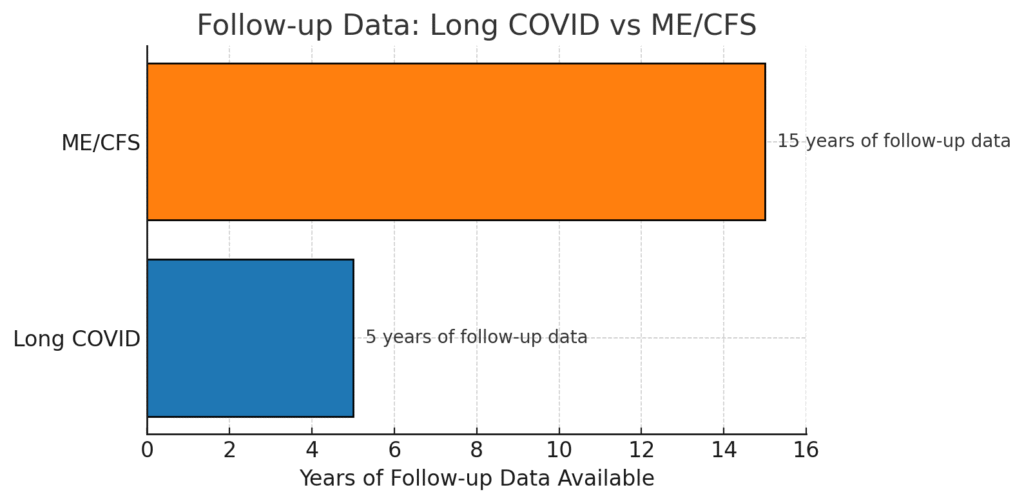Long COVID “Full Recovery” — Why the Data Is Still Incomplete
Has anyone really fully recovered from Long COVID?
The answer: we don’t fully know yet.
While I am cautiously optimistic people in remission will stay recovered, we just don’t have the full observation window to be able to be sure this is the case.
What Current Data Says
Short- to Medium-Term (up to 2 years):
- 7–10% of adults with Long COVID report no symptoms after two years.
- Children and adolescents may recover at higher rates, but data is limited.
Note: These figures come from follow-up studies beginning after early COVID-19 waves in 2020–2021.
Limited Observation Window
- The first COVID-19 cases were discovered in late 2019, so the longest follow-up we have is about 4–5 years.
- We don’t yet know whether “recovered” patients will remain symptom-free indefinitely, experience periodic relapses (like in ME/CFS), or develop new late-onset complications.

Why “Full Recovery” May Not Mean Permanent Recovery
- Different Definitions: Many studies count patients as “fully recovered” if they report no symptoms at the last follow-up, which may be just months after improvement.
- Relapse Patterns: Both Long COVID and ME/CFS can have remission–relapse cycles. A “recovered” patient might relapse after reinfection, major stress, or illness.
- Lessons from ME/CFS: ME/CFS has documented cases where patients improved for years before symptoms returned.
Comparison: Estimated Full Recovery
| Condition | Group | Full Recovery % | Notes |
| Long COVID | Adults | ~7–10% after 2 years | Unknown permanence; limited follow-up |
| Long COVID | Children/Adolescents | Unknown, suspected higher | No robust global data |
| CFS/ME | Adults | ~5–10% | Some relapse years later |
| CFS/ME | Children/Adolescents | ~50–80% | Relapses possible |
Key Takeaways
- We cannot yet claim permanent recovery rates for Long COVID.
- Current numbers reflect short- to medium-term improvement, not lifetime cure.
- Ongoing long-term follow-up is critical to understand:
- Who stays recovered
- Who relapses
- What factors influence outcomes

